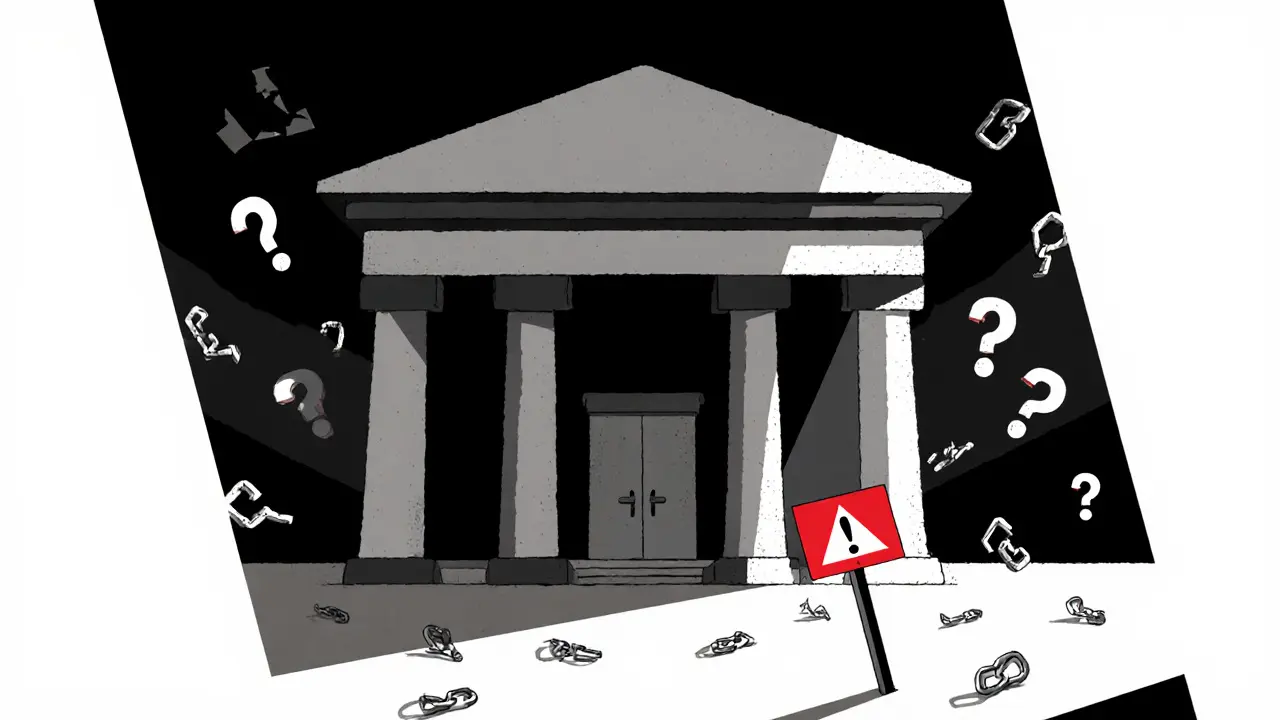Centralized Crypto Exchange Risks: What You Need to Know Before You Trade
When you use a centralized crypto exchange, a platform that holds your crypto and controls your private keys. Also known as CEX, it’s the most common way people buy and trade crypto—but it’s also where most losses happen. You think you’re safe because the site looks professional, has a logo, and even lists customer support. But here’s the truth: if you don’t control your keys, you don’t own your crypto. The exchange does. And if they get hacked, go bankrupt, or decide to freeze withdrawals, you’re out of luck.
That’s why crypto exchange scams, fake platforms that vanish with your money are so common. Look at NUT MONEY or Digiassetindo—both claimed to be real exchanges but had no licenses, no audits, and no way to withdraw funds. Users lost everything. Even big names like DIFX and Tsunami.cash have been flagged for hiding behind vague terms and zero transparency. These aren’t edge cases. They’re the rule in unregulated spaces.
And it’s not just scams. Even legit-looking exchanges like BlueBit or Superp can put your funds at risk. They might offer great tools or high leverage, but if they’re not insured, not audited, and not transparent about reserves, you’re gambling with your assets. A single hack, like the ones that hit Mt. Gox or FTX, can wipe out billions. And when that happens, there’s no FDIC to protect you. No government bailout. Just silence.
That’s why understanding unregulated crypto platforms, exchanges operating without oversight or legal accountability matters. In countries like Nigeria and Indonesia, new exchanges pop up every week with no licensing. They promise high returns, low fees, and fast withdrawals—but they’re not required to prove they hold your coins. Some even fake trading volume to look active. You’re not trading crypto—you’re betting on whether the platform will still exist tomorrow.
The biggest danger? You’re not alone. Thousands of users get caught up in the hype, thinking "it’s just one more exchange." But the pattern is always the same: attract users with promises, collect deposits, then disappear—or freeze withdrawals under some excuse. The crypto exchange security, measures that protect your funds from theft, fraud, or mismanagement on centralized platforms is often an illusion. Two-factor authentication doesn’t help if the exchange itself is compromised. Cold storage? Maybe. But you can’t verify it. And if they’re not publishing proof of reserves, you’re trusting them blindly.
What’s worse? Many users don’t even know the difference between centralized and decentralized exchange, a platform where you keep control of your keys and trade peer-to-peer. They think "DEX" is just another acronym. But a DEX like iZiSwap or Superp (even with its wild leverage) still lets you hold your own crypto. Centralized exchanges? They’re middlemen with your money in their vaults. And vaults can be broken into.
The posts below show real cases—scams like CDONK X CoinMarketCap, ghost tokens like Global Token (GBL), and platforms like Tsunami.cash that look real but aren’t. You’ll see how crypto arrests in Afghanistan and China prove that centralized exchanges aren’t just risky—they’re politically vulnerable. If a government bans crypto, your funds on a centralized exchange vanish overnight. No appeal. No recourse.
Know the risks. Check the licenses. Demand transparency. And never trust a platform that holds your keys. The truth isn’t hidden in fancy websites or influencer endorsements. It’s in who controls your crypto—and whether they’re legally, technically, and morally responsible for it.
Algebra Crypto Exchange Review: What You Need to Know Before Trading
Algebra Crypto Exchange doesn't exist as a legitimate platform. This review exposes the risks of unverified exchanges, explains how to spot crypto scams, and recommends trusted alternatives for safe trading in 2025.
learn more